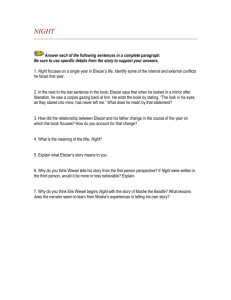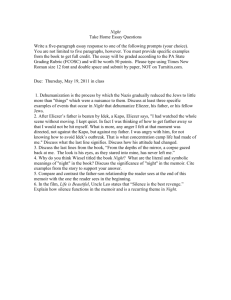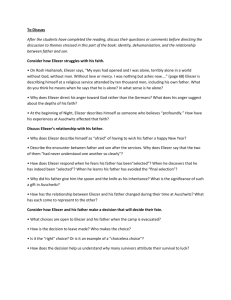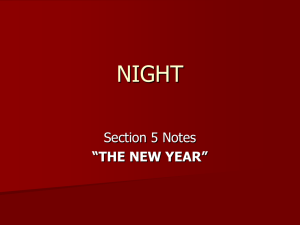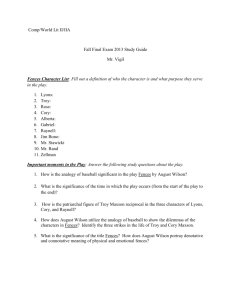Section 7 1. Why does Eliezer believe that there is no longer a
advertisement
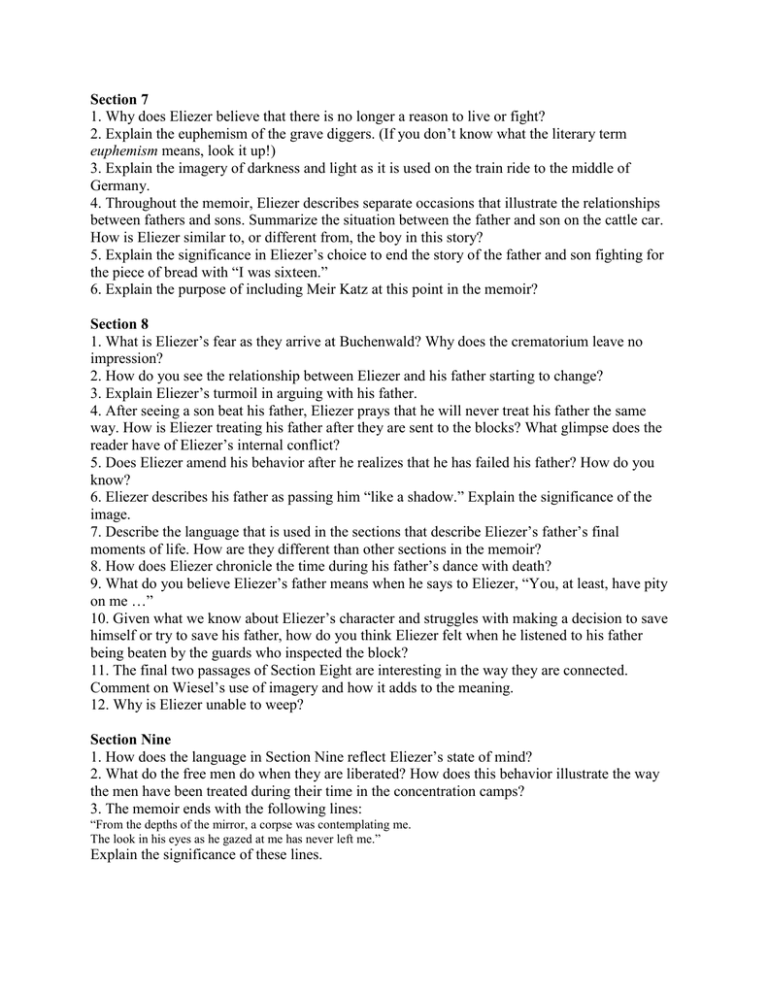
Section 7 1. Why does Eliezer believe that there is no longer a reason to live or fight? 2. Explain the euphemism of the grave diggers. (If you don’t know what the literary term euphemism means, look it up!) 3. Explain the imagery of darkness and light as it is used on the train ride to the middle of Germany. 4. Throughout the memoir, Eliezer describes separate occasions that illustrate the relationships between fathers and sons. Summarize the situation between the father and son on the cattle car. How is Eliezer similar to, or different from, the boy in this story? 5. Explain the significance in Eliezer’s choice to end the story of the father and son fighting for the piece of bread with “I was sixteen.” 6. Explain the purpose of including Meir Katz at this point in the memoir? Section 8 1. What is Eliezer’s fear as they arrive at Buchenwald? Why does the crematorium leave no impression? 2. How do you see the relationship between Eliezer and his father starting to change? 3. Explain Eliezer’s turmoil in arguing with his father. 4. After seeing a son beat his father, Eliezer prays that he will never treat his father the same way. How is Eliezer treating his father after they are sent to the blocks? What glimpse does the reader have of Eliezer’s internal conflict? 5. Does Eliezer amend his behavior after he realizes that he has failed his father? How do you know? 6. Eliezer describes his father as passing him “like a shadow.” Explain the significance of the image. 7. Describe the language that is used in the sections that describe Eliezer’s father’s final moments of life. How are they different than other sections in the memoir? 8. How does Eliezer chronicle the time during his father’s dance with death? 9. What do you believe Eliezer’s father means when he says to Eliezer, “You, at least, have pity on me …” 10. Given what we know about Eliezer’s character and struggles with making a decision to save himself or try to save his father, how do you think Eliezer felt when he listened to his father being beaten by the guards who inspected the block? 11. The final two passages of Section Eight are interesting in the way they are connected. Comment on Wiesel’s use of imagery and how it adds to the meaning. 12. Why is Eliezer unable to weep? Section Nine 1. How does the language in Section Nine reflect Eliezer’s state of mind? 2. What do the free men do when they are liberated? How does this behavior illustrate the way the men have been treated during their time in the concentration camps? 3. The memoir ends with the following lines: “From the depths of the mirror, a corpse was contemplating me. The look in his eyes as he gazed at me has never left me.” Explain the significance of these lines.
